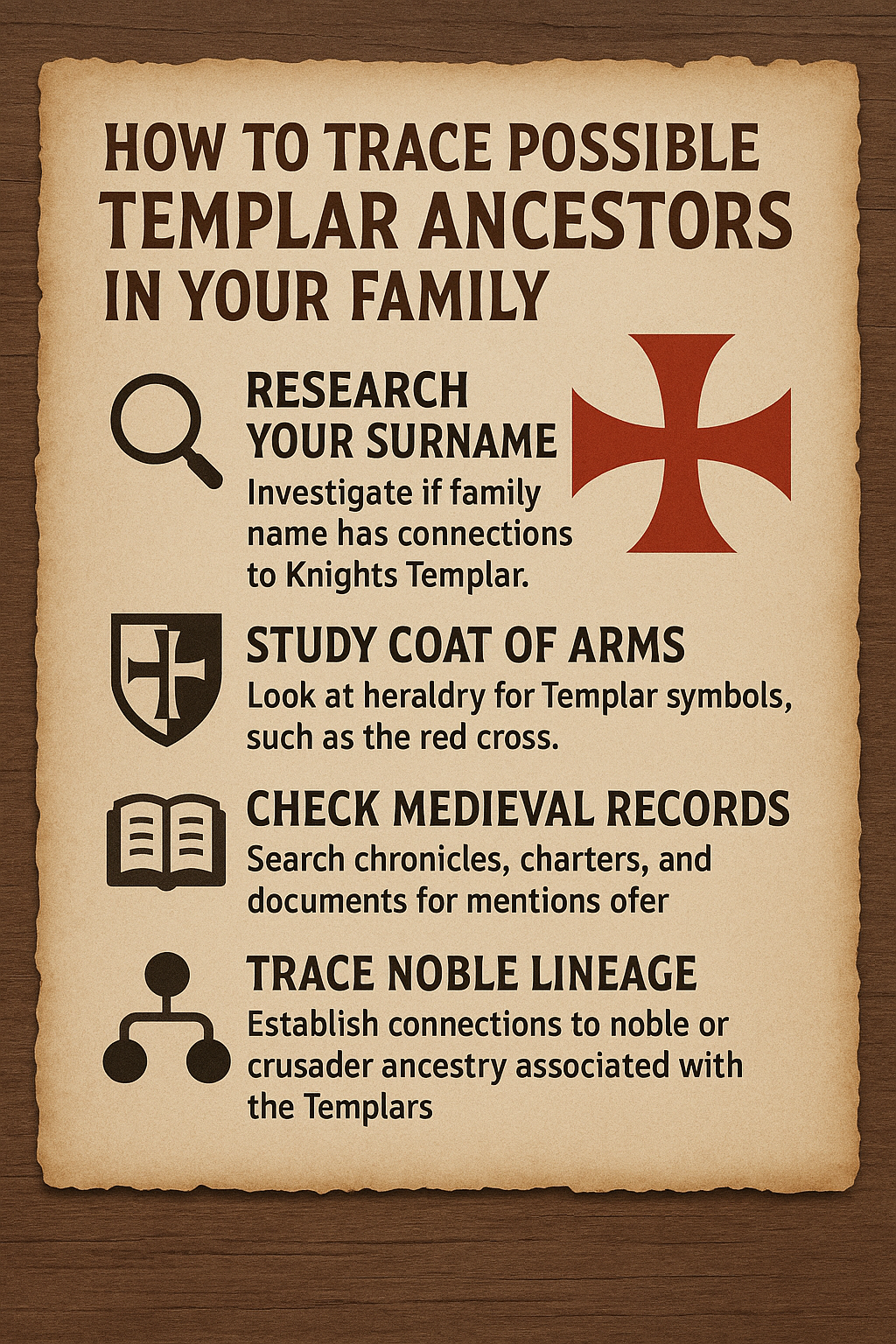Introduction
Many people are fascinated by the idea that their ancestors may have been Knights Templar. While it’s an exciting thought, confirming such a connection requires careful genealogy work, historical research, and sometimes a bit of luck. Modern tools like ancestry websites, parish records, and medieval archives can help you dig deeper into your family tree and possibly uncover ties to the Templar order.
Start with Modern Genealogy Tools
The first step for most people today is to establish where their family came from in Europe. Websites such as Ancestry.com and other family tree platforms are excellent for building out a tree that may stretch back one or two centuries. From there, you can begin the hunt into earlier records.
Tip: Connect with cousins and extended family members who may already have parts of the family history documented. Personal stories and shared research can lead to breakthroughs.
Challenges in Irish Records
If your family roots are Irish, expect some challenges:
-
Catholic church records before the 1820s are often incomplete.
-
A major loss occurred in 1921 when the Custom House in Dublin was burned, destroying many archives.
-
Names may appear in both Gaelic and English, with multiple spellings.
Helpful resources include Irishgenealogy.ie, nidirect.gov.uk (for Northern Ireland), and the National Archives of Ireland. You may also consult newspaper archives and church records where available.
English and Anglo-Norman Connections
Since the Templars were closely linked to Norman expansion, you’re more likely to find a Templar ancestor if your family was of Anglo-Norman stock.
For England and Wales:
-
Birth, marriage, and death records from the General Register Office cover more recent centuries.
-
For earlier times, parish records are essential. Contact local churches or councils where your family lived.
-
Court documents exist in the UK National Archives, though they do not hold birth or death certificates.
Medieval Records Worth Exploring
Surprisingly, medieval record-keeping was more detailed than many imagine. Some valuable resources include:
-
Medieval Soldier Database (1369–1453): Lists peasants and nobles who fought in wars between England and France.
-
London Roll (ROLLCO): A collection of guild and trade records from London’s livery companies, preserving apprenticeships, contracts, and disputes.
-
Medieval Genealogy UK: Probate records, manorial rolls, wills, and land transfers.
-
Church monuments: Inscriptions and memorials often provide family names and dates.
These sources may reveal ancestors active during or shortly after the Templar era.
Watch for Name Variations
Spelling was inconsistent in medieval documents. Factors included:
-
Census takers writing phonetically.
-
Clerks who could not spell well.
-
Language shifts (French Norman names miswritten by Saxon scribes).
Always check for variant spellings in parish registers, wills, and resources such as the Domesday Book.
Look for Place-Name Clues
Templar estates often left their mark on local place names. Examples in the UK include:
-
Templecombe in Somerset.
-
Temple Meads in Bristol.
-
Balantrodoch near Edinburgh, the Scottish headquarters.
However, beware of misleading names such as Temple Grafton in Warwickshire, which has no confirmed Templar link.
For Scottish ancestry, the official site ScotlandsPeople.gov.uk is invaluable, especially when cross-referenced with local parish archives.
Final Thoughts
Tracing ancestry back to the Middle Ages is challenging but rewarding. While definitive proof of a Templar ancestor may be elusive, the journey through historical documents, local archives, and family records will uncover fascinating insights into your heritage.
Good luck with your search — and don’t forget to share your discoveries with others who share the same passion for history and genealogy.








